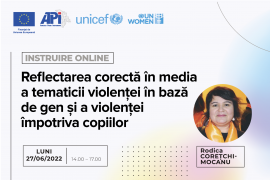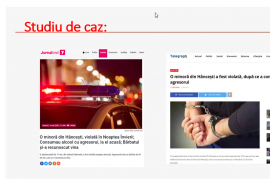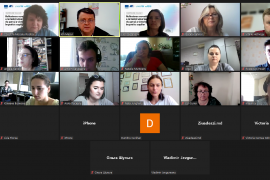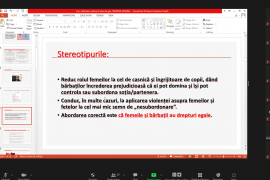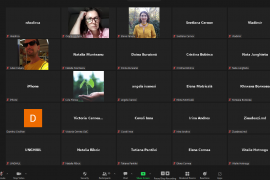back
Professional Dilemmas In Reporting Child And Gender-Based Violence: How To Approach Such Topics Without Harming Victims?
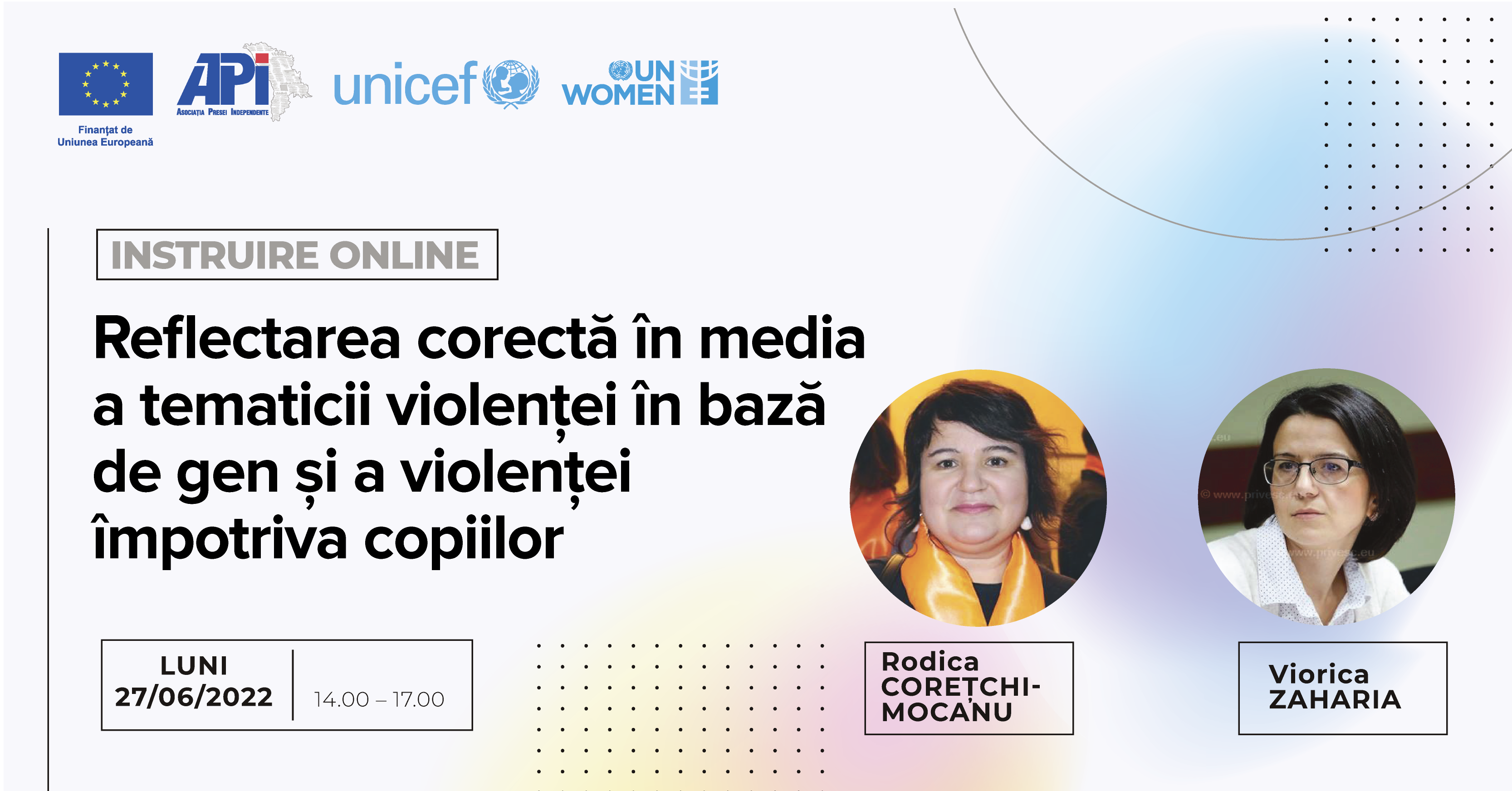
Capture Zoom.us
Child and gender-based violence cases are very sensitive, and journalists who report on them should exercise utmost caution and accuracy so as not to harm the victims. Such topics should be dealt with in a comprehensive and systematic way, while items should be well documented, without 'spicy' stories and sensational elements. During the training "Correct Media Coverage of Child and Gender-Based Violence," trainers Rodica Corețchi-Mocanu and Viorica Zaharia talked about the mistakes journalists make and made recommendations on how to avoid them. Over forty journalists from different media outlets of the country participated in the webinar held by API on 27 June 2022.
The trainers spoke to the participants about the legal and ethical obligations of journalists when covering violence, including against children and gender-based; the stereotypes that encourage violence, the state's response and the obligations of public institutions to communicate with the press in such cases. Situations where public institutions have breached their obligations, but in particular journalists' mistakes, were analyzed. "In the rush for sensation and ratings, media outlets forget the best interests of the child and the 'do no harm' principle. Journalists prefer to report on individual cases of violence, often minor, and they do so in a noisy way that can have major negative consequences for the child. The fact that a child learns that his story has made it into the press makes him feel guilty for what happened and he believes that everyone blames him, and this can lead to his re-victimization. Subsequently, he may become subject to labelling, bullying etc. This is why we ask journalists to focus on the problem, on an in-depth approach to the phenomenon, on policies that would contribute to the development of useful services, programs, on promotion of good practices," Rodica Corețchi-Mocanu, Child Rights Consultant, said. She added that journalists should alert the authorities to problems in the field and see if action has been taken. “Journalists should go back to the authorities, ask what has been done and inform the public to put pressure on public institutions. This is the only way to improve the situation," she concluded.
The second trainer, journalist Viorica Zaharia, helped the participants to better understand the most effective methods of gathering and processing information, how to interview victims correctly, how to use an appropriate language when writing texts. "Child and gender-based violence topics are complicated, and this often scares some journalists away from writing on the subject. However, they need to understand that approaching complicated topics with utmost care and accuracy enhances their credibility and professionalism. I recommend my fellow journalists that when they lack clarity or have any doubts about documenting cases they should seek the help of specialists in the field as often as possible. They are ready to help journalists to write quality material that does not harm the victims of violence,” the trainer noted.
Training participants noted the practical usefulness of the information presented at the webinar. "For our portal, audience is very important and we are often tempted to report in a sensational way on certain topics. Today's training helped us to understand how to approach such sensitive topics so as to avoid mistakes and maintain our image as a fair, serious media institution," director of Cahul-based portal Ziuadeazi.md Vitalie Hotnogu said. Victoria Cernea, reporter for Gazeta de Chișinău, added, "When writing material on these topics, we have to think carefully, to document well, so as not to harm the victims. As Ms Zaharia said, an act of violence is not a show, and we must write in-depth material and alert the authorities to such problems so that they can solve them."
More information on this topic can be found in the Guide to “Media Coverage of Child and Gender-Based Violence”, developed by API.
The full recording of the webinar is available HERE.
This training is held by the Association of Independent Press (API) under the EVA Project "Promoting Gender Equality in Cahul and Ungheni districts," funded by the European Union and implemented by UN Women in partnership with UNICEF. The views and opinions expressed herein belong to the authors and do not necessarily reflect the views of UN Women, UNICEF or the European Union.
